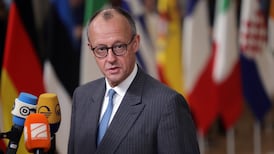There it was, in bold red and white, a big cross mark with the word “False”. My story had been “fact-checked” by the website that calls itself the “internet’s definitive fact-checking resource”, Snopes. It had branded my story fake news – without ever contacting me to ask me about my evidence. Some fact-checking.
Over on Twitter, the official account of the United Nations Spokesperson was using the same language. "Yes, it's fake," the UN Spokesperson Twitter account wrote of my story. "It is simply not the case that staff have been instructed not to use words like 'war' or 'invasion' to describe the situation."
And yet, in front of my eyes on my laptop screen was the email itself: a message to staff from the UN’s department of global communications, telling them to use: “conflict” or “military offensive” and not “war” or “invasion” when referring to the situation in Ukraine”.
But the vehement denials of the clearly embarrassed UN were proving effective. I watched in real time as senior journalists deleted the posts they had published sharing my story, some offering apologies. “Took down a tweet re: UN because I hadn’t seen the denial. I am sorry for the mistake,” wrote a respected Washington correspondent. When I offered to share my evidence with her, she did not reply.
‘Fake news’ watchdogs
Vigilante “fake news” watchdogs roamed the internet, demanding that people delete the story, and linking to the Snopes rating as evidence. They even harangued me.
“This is fake news, the @UN_Spokesperson has denied,” a verified account wrote to me. “Please delete,” another wrote. “Stop spreading fake news. You’re embarrassing yourself.” “Get this fake news off of here. Already been confirmed to be fake. Top UN spokesperson. How much are you getting paid by Putin?”
But I was not alone. Others knew it was true: UN staffers themselves. And they were angry. The denials spurred brave individuals to send me more documents, backing up my story, because they were outraged by the words of their own spokespeople.
If fact-checking websites had been around, would they have quickly branded Watergate false, based on Nixon's denials?
One described how their horror at the use of the word “fake” by the UN official account gave them the courage to come forward, risking their job.
“I saw the reaction of the spokesperson and I thought: no. This is beyond,” they told me. “We are supposed to be standing for something.”
Emotional staffer
The emotional staffer pointed out that the very same email they had received instructing them not to use “invasion” and “war” had advised them to be cautious about disinformation and misinformation.
“What really, really made me angry was that in that same email, as you probably saw, there is this whole guidance on how to avoid misinformation and that this is also a ‘communications war’,” the staffer said.
“The use of words fake news – this is a real danger. It’s a real threat, and it’s not something to throw at someone,” they said. “That’s what made me feel like: either I hallucinated it, or I have to share it.”
I too offered to share the proof I had with any journalist who wanted to confirm it, within the bounds of protecting my sources of course. After I reached out to Snopes, they updated their rating to “mixture”.
I was amazed at how many people were dismissing my story based on a carefully worded denial by a spokesman, who if you listened closely, shifted from denying such an email was sent outright, to denying that it was (currently?) official policy, while then accepting it had been sent and minimising it as the act of a rogue regional office.
Original story
The fresh documentation I now had backed up my original story. It became clear that the email banning “war” and “invasion” was only the most explicit in a stream of top-down orders to UN staffers instructing them to use moderate language like “conflict” or “military operation”, or not to mention the “situation in Ukraine” at all.
One email even suggested the decision not to use the word “invasion” was made by the office of the UN secretary general António Guterres himself. Something the UN spokesperson has declined to deny. Their tweet describing my initial story as “fake” has now been deleted.
One can think of absurd possibilities. If fact-checking websites had been around, would they have quickly branded Watergate false, dissuading others from following up on the story, based on the denials of Richard Nixon?
I'm not the only journalist to experience fact-checking gone wrong. The Guardian correspondent Shaun Walker, on the ground in Ukraine, posted an image of a road sign in Odesa altered to read "f**k off to Russia".
Cue a barrage of accounts pompously accusing him of sharing a photoshopped image. His response: “I took the photograph myself three hours ago.”










